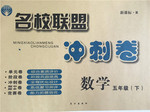
�������
2013���������������Ϯ��������һЩ���У��������ǶԿ��������Ĺ㷺��ע��
�������������Уѧ������ϯ������㳫��ȫУѧ�������ж��������Ծ����ƿ�����Ⱦ������������д��Ҫ�㣬дһƪӢ�ﳫ���顣
1�� ����������Ⱦ����״��
2�� ����������Ⱦ��ԭ��
3�� ������㳫�顣
ע�⣺1.����120���ң���ͷ�ͽ�β�Ѿ��������������ܴ�����
2.�����ʵ�����ϸ�ڣ���ʹ�������ᡣ
3.�ο��ʻ㣺fossil fuel ��ʯȼ�� carbon dioxide ������̼
Dear fellow students��
The foggy weather these days has caused widespread concern about air pollution.
Let us take immediate action to fight against air pollution.
Li Hua
 ��ĩ��ϰ���ϵ�д�
��ĩ��ϰ���ϵ�д� ����ѧ�䵥Ԫ������ĩר����100��ϵ�д�
����ѧ�䵥Ԫ������ĩר����100��ϵ�д� �Ƹ�360�ȶ����ܾ�ϵ�д�
�Ƹ�360�ȶ����ܾ�ϵ�д� ���⿼����Ԫ���Ծ�ϵ�д�
���⿼����Ԫ���Ծ�ϵ�д� ��У���˳�̾�ϵ�д�
��У���˳�̾�ϵ�д�
| �꼶 | ���пγ� | �꼶 | ���пγ� |
| ��һ | ��һ��ѿγ��Ƽ��� | ��һ | ��һ��ѿγ��Ƽ��� |
| �߶� | �߶���ѿγ��Ƽ��� | ���� | ������ѿγ��Ƽ��� |
| ���� | ������ѿγ��Ƽ��� | ���� | ������ѿγ��Ƽ��� |
��Ŀ������Ӣ�� ��Դ��2015-2016ѧ�꽭�������ڶ���ѧ�߶���ѧ�ڵ�һ���¿�Ӣ���Ծ��������棩 ���ͣ��������
The old man _______ his load on the ground and _______ down to have a rest.�� ��
A��lay; lay B��laid; lay
C��laid; laid D��lied; lied
�鿴�𰸺ͽ���>>
��Ŀ������Ӣ�� ��Դ��2015-2016ѧ�꼪����ԭ������и߶���ѧ����ĩӢ���Ծ��������棩 ���ͣ��Ķ�����
The scientist from the Lockheed Space Company work in Felton, California, with the help of a computer. But the computer is placed in Sunnyside, about 80 kilometers away. What scientists input (����) is sent by telephone lines to the computer, and after a time, copies of the designs are needed back in Felton as quickly as possible Lockheed people have tried several ways of sending the prints, but the most effective seems to be by pigeon. Are pigeons really used to carry messages in these days? They are, and they send the prints faster and cheaper than any other way.
Human messengers are much more expensive and slower than the pigeons. The road to Felton goes through the mountains, and the driving is not easy. An electronic printout (���Ӵ�ӡ���) system could do the work in Felton, but at a cost of 10 dollars a print. Pigeons carry the designs for about 1 dollar each.
Now Lockheed people have ten pigeon messengers. The pigeons do the work, and they have made Lockheed more famous. You can often read the news about pigeons in the newspapers around the world.
1.The passage is mainly about ___________________.
A. Felton, California
B. the scientists
C. how to work with computers
D. sending prints by pigeon
2.This story is unusual because pigeons ____________________.
A. don��t like carrying things
B. are often expensive to keep
C. seem out of place in the space age
D. aren��t friendly to the scientists
3.Something that��s effective ________________________.
A. usually costs more
B. is something that works
C. is often unhappy
D. is often done by animals
�鿴�𰸺ͽ���>>
��Ŀ������Ӣ�� ��Դ��2016����������ظ���ѧ����8���¿�Ӣ���Ծ��������棩 ���ͣ���ѡ��
���ݶ������ݣ��Ӷ��ĺ��ѡ����ѡ��������հ״������ѡ�ѡ����������Ϊ����ѡ�
If you do not use your arms or your legs for some time��they become weak��when you start using them again��they slowly become strong again��Everybody knows this, and nobody would think of questioning the fact. 1. When someone says that he has a good memory��he really means that he keeps his memory in practice by exercising it regularly, either consciously or unconsciously��When someone else says that his memory is poor��he really means that he does not give it enough opportunity to become strong�� 2. One of them exercises his arms and legs by playing tennis, while the other sits in a chair or a motor car all day.
If a friend complains that his arms are weak, we know that it is his own fault. 3. , many of us think that his parents are to blame��or that he is just unlucky, and few of us realize that it is just as much his own fault as if it was his arms or legs that were weak��Not all of us can become extremely clever; but all of us can, if we have ordinary bodies and brains, improve our strength and our memory by the same means��practice.
Have you ever found that some people who cannot read or write usually have better memories than those who can? 4. Of course, because those who cannot read or write have to remember things��they cannot write them down in a little notebook��They have to remember dates��time and prices, names��songs and stories��so their memory is the whole time being exercised��
5. ��learn from the poor��practise remembering��
A. What do you think of it? B. Yet many people do not seem to know that memory works in the same way�� C. But if he tells us that he has a poor memory D. So if you want a good memory E. When someone else says that he is poor in the health F. Why is this? G. The position is exactly the same as that of two people. |
�鿴�𰸺ͽ���>>
��Ŀ������Ӣ�� ��Դ��2015-2016ѧ���Ĵ�������ɽ��ѧ�߶���ѧ������Ӣ���Ծ��������棩 ���ͣ��Ķ�����
This was Larry��s another underwater expeditions(̽��). However, this time, it was quite different. He decided to take his daughter along with him. She was only ten years old. This would be her first trip with her father on what he had always been famous for.
Larry first began diving when he was his daughter��s age. Similarly, his father had taken him along on one of his expeditions. Since then, he had never looked back. Larry started out by renting diving suits from the small diving shop just along the shore. He had hated them. They were either too big or too small. Then, there was the instructor. He gave him a short lesson before allowing him into the water with his father. He had made an exception. Larry would never have been able to go down without at least five hours of theory and another similar number of hours on practical lessons with a guide. Children his age were not even allowed to dive.
After the first expedition, Larry��s later diving adventures only got better and better. There was never a dull moment. In his black and blue suit and with an oxygen tank fastened on his back, Larry dived from boats into the middle of the ocean. Dangerous areas did not prevent him from continuing his search. Sometimes, he was limited to a cage underwater but that did not bother him. At least, he was still able to take photographs of the underwater creatures.
Larry��s first expedition without his father was in the Cayman Islands. There were numerous diving spots in the area and Larry was determined to visit all of them. Fortunately for him, a man offered to take him around the different spots for free. Larry didn��t even know what the time was, how many spots he dived into or how many photographs he had taken. The diving spots afforded such a wide array of fish and sea creatures that Larry saw more than thirty varieties of creatures.
Larry looked at his daughter. She looked as excited as he had been when he was her age. He hoped she would be able to continue the family tradition. Already, she looked like she was much braver than Lorry had been then. This was the key to a successful underwater expedition.
1.In what way was this expedition different for Larry?
A. His daughter had grown up.
B. He had become a famous diver.
C. His daughter would dive with him.
D. His father would dive with him.
2.What can be inferred from Paragraph2?
A. Larry was lucky to have got such a chance to dive.
B. Larry liked the rented diving suits.
C. Ten-year-old children were permitted to dive.
D. Divers had to buy diving equipment.
3.Why did Larry have to stay in a cage underwater sometimes?
A. To take photos more conveniently.
B. To dive into the deep water.
C. To admire the underwater view.
D. To protect himself from danger.
4. What can be learned from the underlined sentence?
A. Larry didn��t wear a watch.
B. Larry enjoyed the adventure.
C. Larry had a poor memory.
D. Larry was not good at math.
5.What did Larry expect his daughter to do?
A. Make a good diving guide.
B. Have longer hours of training.
C. Take a lot of photo underwater.
D. Become a successful diver.
�鿴�𰸺ͽ���>>
��Ŀ������Ӣ�� ��Դ��2016����������ѧ������ѧ�ڵ��Ĵ��¿�Ӣ���Ծ��������棩 ���ͣ����ĸĴ�
���ĸĴ�
�ٶ�Ӣ�������ʦҪ��ͬ��֮�佻�������ģ���������ͬ��д���������ġ����й���10�����Դ���ÿ���������������������漰һ�����ʵ����ӡ�ɾ�����ġ�
���ӣ���ȱ�ʴ���һ��¥�ַ��ţ��ģ�������������д���üӵĴʡ�
ɾ�����Ѷ���Ĵ���б�ߣ�����������
�ģ��ڴ��Ĵ��»�һ���ߣ����ڸô�����д���ĺ�Ĵʡ�
ע�⣺1.ÿ���������ľ�����һ�ʡ�
2.ֻ������10�������ߣ��ӵ�11���𣩲��Ʒ֡�
In China, there is a old saying that one��s hair and skin are given by his parents, so there is no right for him to change his skin. But as the development of high technology, more and more people chose to take the plastic surgery to make them look more perfectly. Many years ago, plastic surgery was very popular in Korea. Chinese people start to accept the plastic surgery because the influence of the Korean TV series. Though people can make themselves look more beautiful, but I don��t support the plastic surgery. People will hurt himself, for they don��t know the risk that they may face. What��s more, after the surgery, there are always side effects, that hurt people all the time. For the normal people, it is no need to change their face. The real beauty is from the soul, while the beauty gaining by surgery can��t change people��s soul.
�鿴�𰸺ͽ���>>
��Ŀ������Ӣ�� ��Դ��2016��ɽ��ʵ����ѧ������ѧ�ڵ��������Ӣ���Ծ��������棩 ���ͣ��Ķ�����
THANK-you cards--heartfelt expressions of gratitude for gifts, services and general kindness--seem to be rare in an age when the Internet continues to reduce human interaction.
Although our society has changed greatly over the past century, the etiquette of thank-you notes has not.
While most people would agree that thank-you notes under these circumstances are a necessity, there are still those who forever postpone or are forgetful for unknown reasons.
And at no time of the year are thank-you notes more visible (or lacking) than June, the month of graduations, and the beginning of summer parties.
"It's a must-do thing. A real thank you does not come by e-mail. It comes in the mail in an envelope. And what comes out of an envelope is a beautiful thing to touch and to handle and to pass around for everyone to read," said etiquette expert Letitia Baldrige.
Don't think for a second that Baldrige is old-fashioned. Handwritten thank-you notes--any handwritten correspondence, for that matter- have taken on an air of extra importance and dignity (ׯ��) in this e-hyper (���ӿ����) world.
Baldrige remains hopeful that the art may be enjoying a renaissance (����,����).
More than simply obeying rules of etiquette, thank-you cards are a sign of caring.
"They're more important now than ever," expert Peter Post says. "You are building a relationship. And part of building that relationship is that you acknowledge when someone has done something nice for you. "
"The payoff," Post says, "can be huge. The more we do it, the more it comes back to us, and it's a benefit to us all. It makes our world a little bit nicer place to live in. "
1.Nowadays thank-you cards seem to be rare mainly because ______.
A. people think that they are out of fashion
B. it is quicker to say thanks by e-mail
C. the Internet has reduced people's contact
D. people are too busy to remember these things
2.From the context, the word "etiquette" in the second paragraph probably means ______.
A. old objects for sale
B. rules for people to obey
C. hand-made articles
D. customs for polite behavior
3.The author implies in this article that ______.
A. old-fashioned people take a negative attitude to e-mails
B. the changing society is making people impolite and lazy
C. modern technology is driving people apart
D. the e-hyper world is not a nice place to live in
4.What��s Baldrige��s attitude towards handwritten thank-you cards?
A. Regretful to disappear
B. Promising to come back
C. Old-fashioned to keep
D. Unnecessary between friends
�鿴�𰸺ͽ���>>
��Ŀ������Ӣ�� ��Դ��2015-2016ѧ�������һ��ѧ�߶���ѧ����ĩӢ���Ծ��������棩 ���ͣ��������
�������
I suddenly noticed them cross before my car as I was driving out of the store parking lot. I would be ________ for a whole ten seconds. ________ , I realized that it was an elderly couple who were ________ blocking my departure. No more ________ .
The man leaned on his wife who walked in front of him. He not only used her for ________ but it was obvious that he was ________ ��She was his eyes as well. The two of them ________ as one �� each needing to function in this fast-changing world. Suddenly I wasn��t so ________ about having to work a few extra hours on Saturday. I had my ________ , and I was still relatively young.
That scene of those two elderly people ________ with dignity stayed with me the entire week. My life wasn��t so bad ________ . I had my health and a good job��My wife always gave me good ________ whenever I needed it. I started to think �� not only was I lucky to have it all, ________ so was that wonderful old couple, who, ________ the trials and hardships of a long life, still had the love and help of each other to ________ them through this world��
There are so many people out there just like that couple. My wife and I sometimes ________ ourselves in our old age, walking arm-in-arm into the sunset. That image always gives us a warm feeling of ________ . Just remember, ________ of us would be here if it weren��t for our elders. We should spend an ________ minute to listen and learn ________ it comes to helping our elder friends. They need it.
1.A. calledB. delayedC. warnedD. watched
2.A. ThusB. ThereforeC. HoweverD. Even
3.A. slowlyB. anxiouslyC. impatientlyD. briefly
4.A. waitB. angerC. quarrelD. time
5.A. supportB. memoryC. courageD. success
6.A. deafB. illC. dyingD. blind
7.A. livedB. unitedC. workedD. trusted
8.A. surprisedB. madC. excitedD. satisfied
9.A. loveB. familyC. wealthD. strength
10.A. walkingB. smilingC. talkingD. thinking
11.A. by chanceB. at lastC. on purposeD. after all
12.A. foodB. adviceC. ideasD. power
13.A. alsoB. asC. andD. but
14.A. thoughB. duringC. despiteD. since
15.A. allowB. carryC. adaptD. devote
16.A. pictureB. predictC. acceptD. admit
17.A. comfortB. enjoymentC. connectionD. relation
18.A. allB. neitherC. noneD. any
19.A. entireB. exactC. awesomeD. extra
20.A. ifB. whenC. becauseD. as
�鿴�𰸺ͽ���>>
��Ŀ������Ӣ�� ��Դ��2016�걱����������������ѧ����ĩ����Ӣ���Ծ��������棩 ���ͣ��������
��The game last night was so good.
��Yeah! Our school team won _______ two points!
A�� by B�� at
C�� in D�� to
�鿴�𰸺ͽ���>>
����ʡ������Υ���Ͳ�����Ϣ�ٱ�ƽ̨ | �����к���Ϣ�ٱ�ר�� | ����թƭ�ٱ�ר�� | ����ʷ���������к���Ϣ�ٱ�ר�� | ������Ȩ�ٱ�ר��
Υ���Ͳ�����Ϣ�ٱ��绰��027-86699610 �ٱ����䣺58377363@163.com